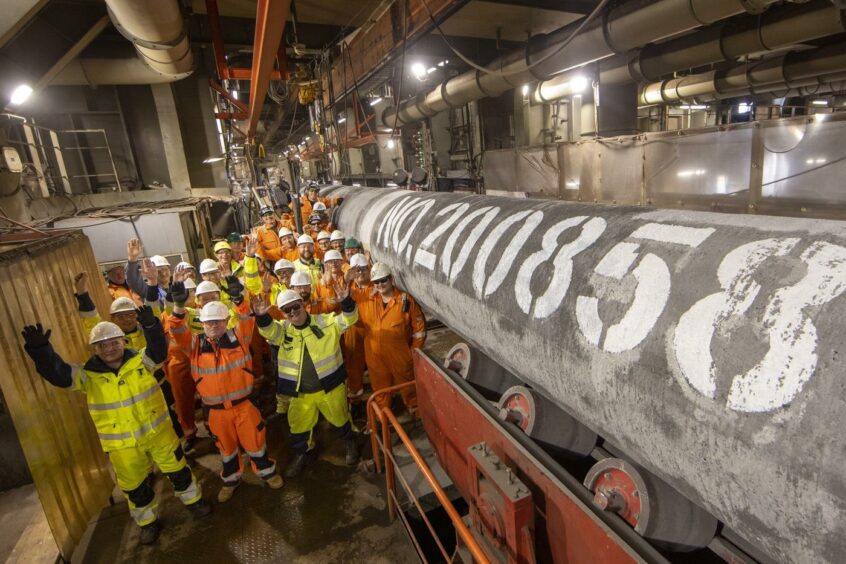
A Swiss court has granted a six-month “stay of bankruptcy” to the operating company for the never-opened Nord Stream 2 pipeline, which was built to bring Russian gas to Germany but put on ice shortly before Russia invaded Ukraine in February.
The company’s stay was extended from January 10 through to July 10 by a regional court in the Swiss canton (state) of Zug, according to a notice published on Wednesday in the Swiss Official Gazette of Commerce.
Nord Stream 2 AG, a subsidiary of Russia’s Gazprom, is based in Zug. Nord Stream 2’s court-appointed administrator, Transliq AG, sought the extension.
German Chancellor Olaf Scholz’s government halted the certification process for the pipeline on February 22, after Russia recognised the independence of two separatist regions in eastern Ukraine.
Russian President Vladimir Putin ordered troops into Ukraine two days later, and US President Joe Biden President then directed his administration to impose sanctions on the Nord Stream 2 operating company.
The pipeline project had long drawn resistance from Ukraine and eastern European countries, as well as bipartisan opposition in the United States.
At the beginning of March, the operating company said it had dismissed all its employees in Zug, who numbered up to 110, according to local officials.
Russia once accounted for more than half of Germany’s natural gas supplies but started reducing deliveries in mid-June, citing alleged technical problems with the parallel Nord Stream 1 pipeline. It has not delivered any gas to the country since the end of August.
Mr Putin has periodically taunted the West by raising the prospect of sending gas through Nord Stream 2, a political nonstarter for the German government and others.
In September, undersea explosions damaged both Nord Stream 1 and Nord Stream 2. The prosecutor leading Sweden’s preliminary investigation said last month that investigators found traces of explosives at the site where the pipelines were damaged in an act of “gross sabotage”.
Investigators have not given indications of whom they think might be responsible.
